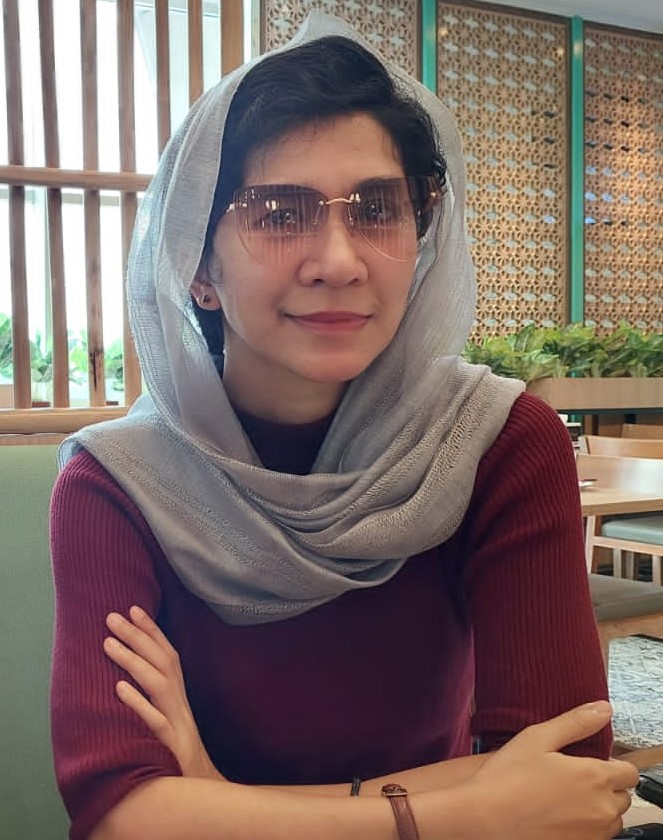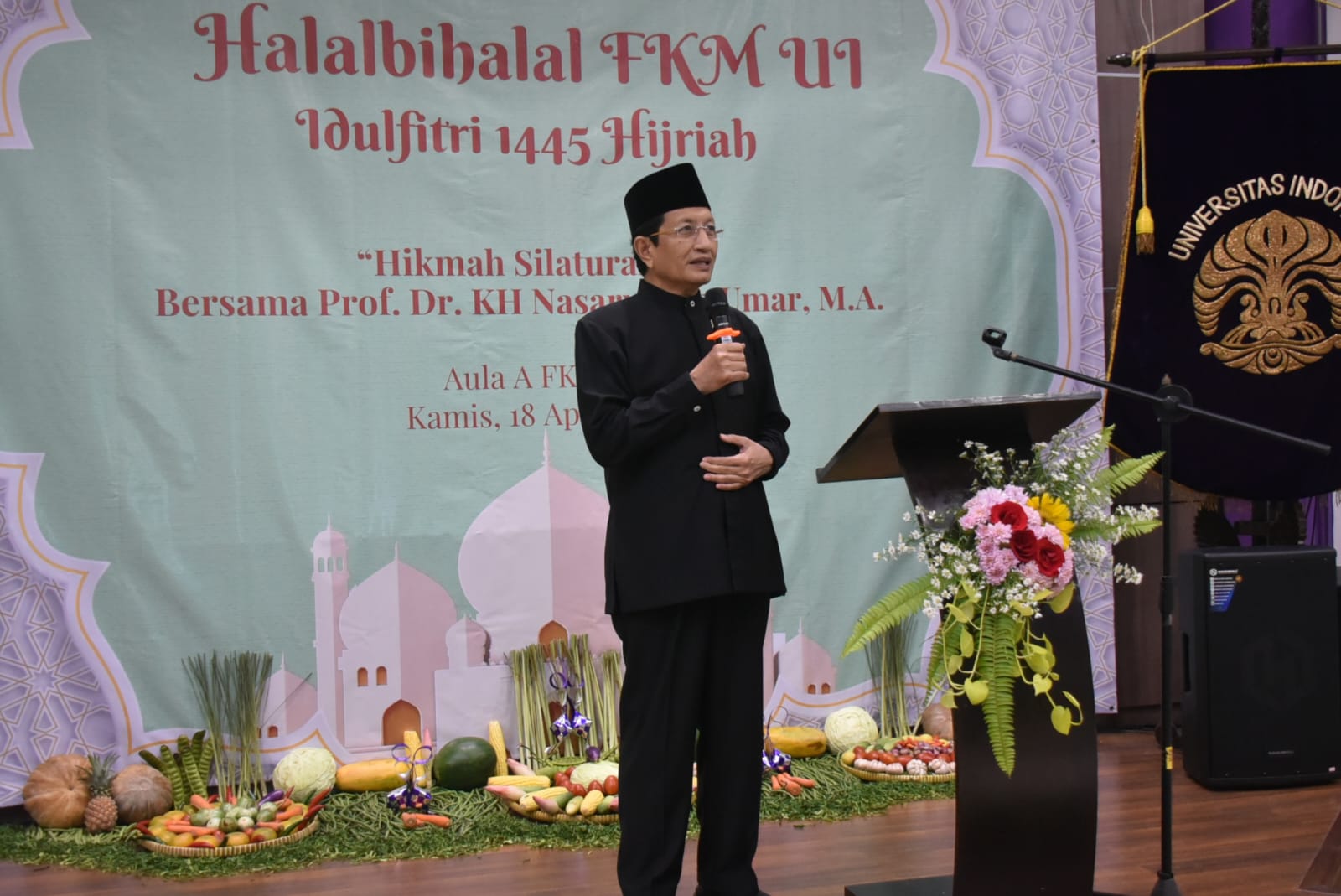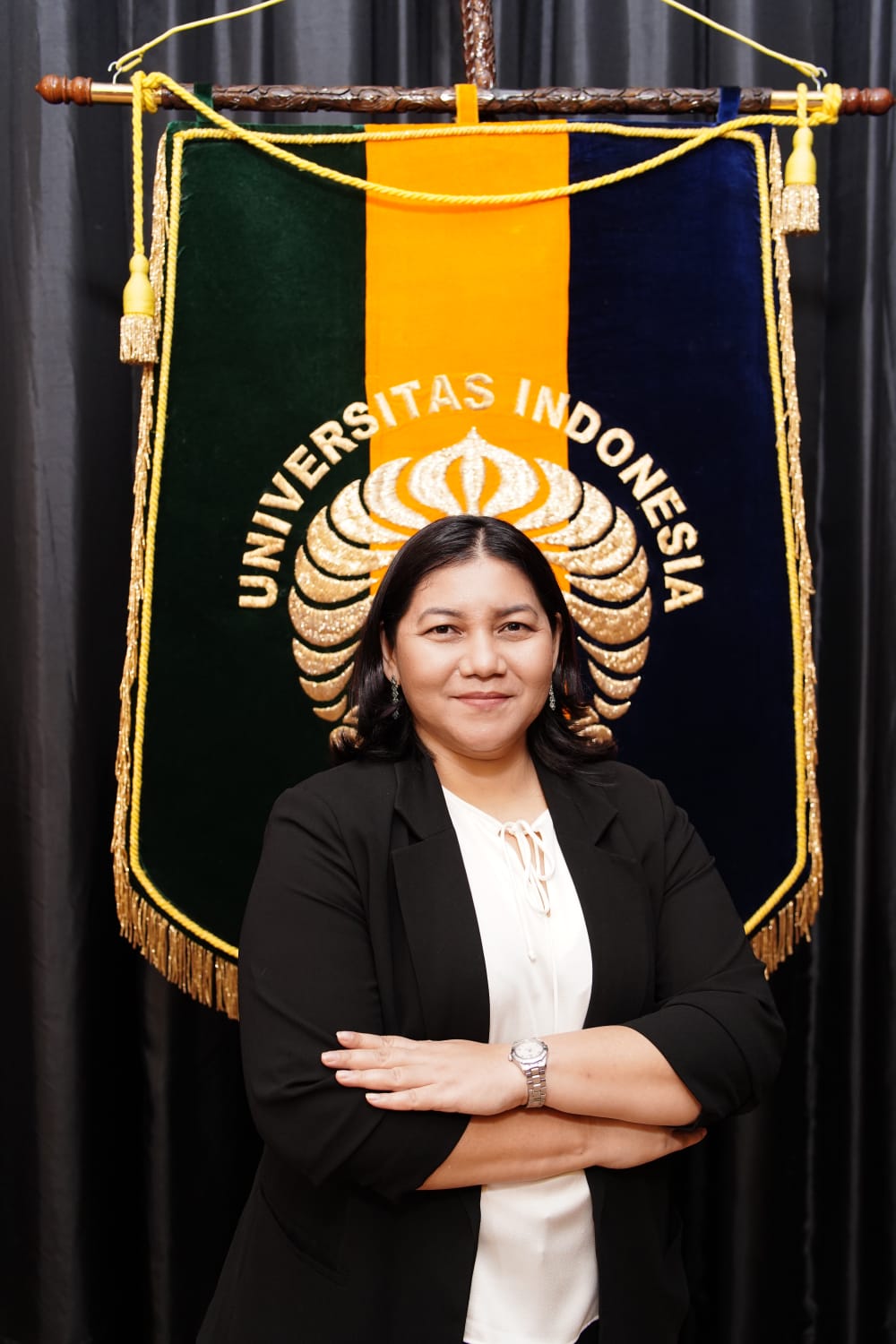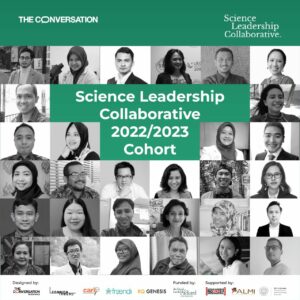
As many as 30 researchers from various fields in Indonesia have been selected to undergo the Science Leadership Collaborative (SLC) program which will later lead them to become future leaders in their respective scientific fields. The Conversation Indonesia (TCID) developed the SLC program with the support of The David and Lucile Packard Foundation and in collaboration with national experts.
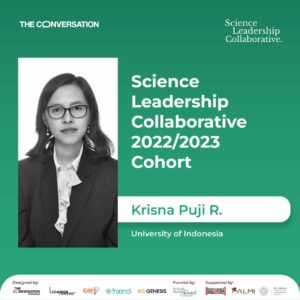
Two lecturers from the Universitas Indonesia, namely a lecturer at the Faculty of Administrative Sciences, Universitas Indonesia (FIA UI), Krisna Puji Rahmayanti, S.I.A., M.P.A and a lecturer at the Faculty of Engineering, Universitas Indonesia (FT UI), Nuraziz Handika, S.T., M.T., M.Sc were selected as participants in the program. Krisna is a lecturer in government, policy, and public services for health, disaster, and public management issues at FIA UI.
He is currently pursuing a doctoral degree at the University of Birmingham, UK, with a research focus on disaster management. Krisna is also one of the founders of the Center for Collaboration & Resilience, a community that encourages cross-sector collaboration forums, increased literacy in higher education, and disaster risk mitigation.
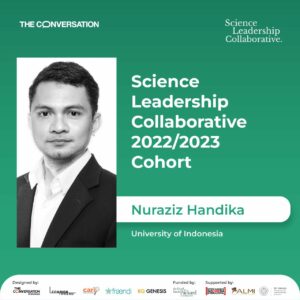
Nuraziz is a lecturer and researcher at the FT UI Civil Engineering Study Program who is an expert in the field of structural engineering, especially in experimenting and modeling fracture mechanics of structures and materials. He holds a doctorate degree from INSA Toulouse, France, and is a member of the Road Bridge and Tunnel Safety Commission, a collection of bridge experts from various elements in charge of evaluating the safety of bridges and tunnels to meet applicable standards.
Researchers who become participants in this program will experience what is known as transformational leadership. Participants will learn to innovate, influence their fields and communities, as well as mobilize resources and collaborate with various stakeholders to solve complex problems that exist in society.
Over the course of nine months, participants will attend a series of workshops from international facilitators and speakers. In addition, they will also participate in mentoringsessions with leading scientific figures from within and outside the country, as well as engage in various activities that encourage collaboration among participants.
Senior scientist and former Chairman of the Indonesian Academy of Sciences, Prof. Sangkot Marzuki considered this program a very good breakthrough. “I think the ability to lead and collaborate are two things we need to build from the very beginning of our careers as researchers. Hopefully this program can give birth to new science leaders in Indonesia,” said Prof. Sangkot.
In addition to the hope of producing science leaders in the future, SLC Program Manager, Fito Rahdianto also hopes that this program can trigger the birth of more leadership programs for researchers in Indonesia. Not only from various scientific fields, the 30 selected researchers also came from various regions in Indonesia. Some of them are affiliated with universities and non-ministerial government institutions, while others are researchers in non-governmental organizations and private researchers.
A lecturer at Kobe University who is also a consultant for the SLC program, Dr. Mizan Bisri assessed that the diversity of participants in this program was important to help pave the way for cross-disciplinary and cross-sector collaboration in the Indonesian research ecosystem. “The selection of this program has produced a group of qualified researchers, who represent various research areas, institutions, and regions,” he said.
The Executive Editor of The Conversation Indonesia, Prodita Sabarini, said that the SLC program is present as a complement and reinforcement of other programs for existing scientists, which can increase optimism for the Indonesian scientific community. “I am proud and grateful that The Conversation can play a role in building a community of science leaders who understand the importance of collaboration to solve complex challenges,” he said.
SLC is specifically designed using the most advanced and up-to-date methods and approaches such as Leadership Development developed at Harvard University; the framework of the disruption expert and exponential organization from India, Salim Ismail; United States pioneer of systems thinking, Barry Oshry; and Swedish complexity theory developer Nora Bateson to support the participants’ vertical development, particularly in the aspects of leadership and collaboration.

